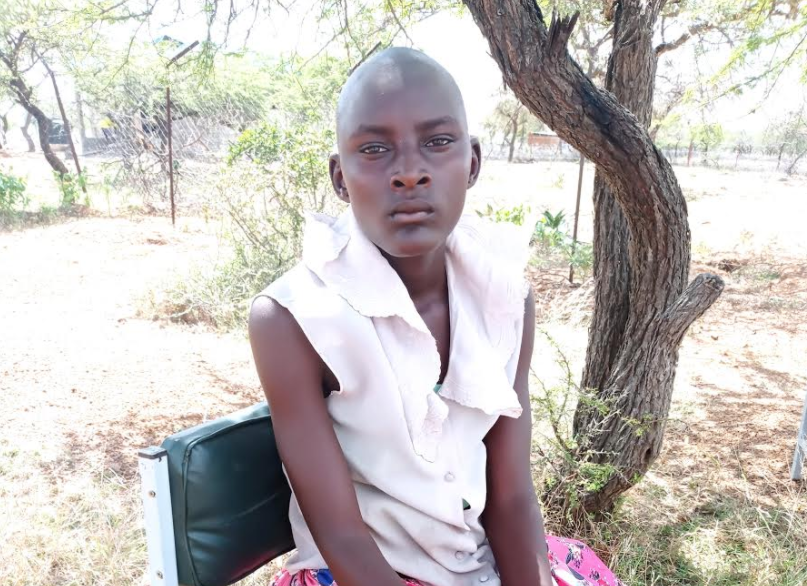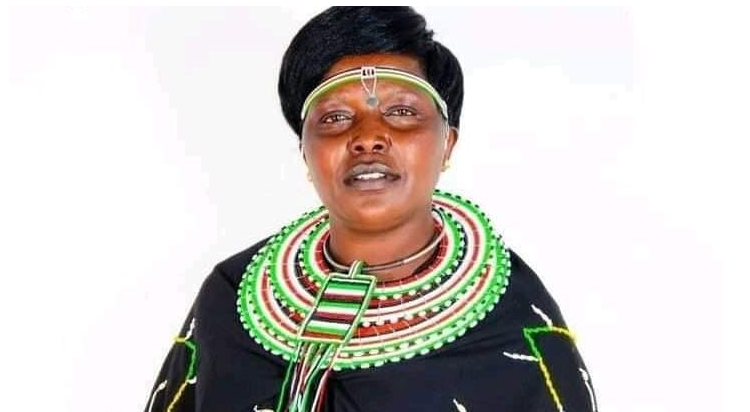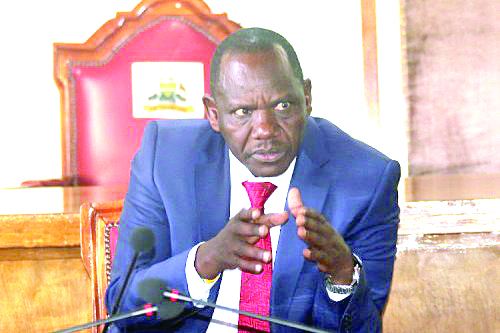Sigh of relief for girls using school-provided free pads

As school doors reopen in the country, teenage girls have a reason to smile. This is because school reopening means they will now be able to access free sanitary towels.
In Kenya, the last nine months when schools were closed were the toughest months for teenage girls mostly from the vulnerable background. The reason being, most of them couldn’t afford to buy sanitary towels as they used to rely on free sanitary towels offered by the government in schools forcing them to use other available alternatives.
The provision of sanitary towels to school girls was disrupted by the Covid-19 outbreak that forced schools to close. Though the government had plans to continue providing sanitary towels to girls while at home before schools reopen this never came to pass.
Emily Cheptoo, from Kalikwon Village, West Pokot County is one of the girls who resulted into using old clothes popularly known as “viraka” in her community during her menses since her mother couldn’t afford to buy her sanitary towels.
“The last nine months were the toughest. My parents couldn’t afford to buy sanitary towels. I was forced to use what was available. But now that schools have reopened I am so happy,” says the 13-years old class seven pupil.
For the whole nine months, she was using old clothes when on menses something she says was traumatizing and lowered her self-esteem. During that time, she used not to step out of her parent’s compound. This is because clothes don’t catch menstrual flow effectively and she always feared to soil her clothes. Apart from that one needs to clean the rags after every change.
“The washing part of it makes the whole issue difficult. This is because you can’t do it in public. When drying the cloth, you also need to hide them from people to avoid being laughed at by people.”
Others like Florence Amiyako,13 years old from the same County even getting old clothes for use was a privilege. Most are the times she was forced to let the blood flow freely when she couldn’t get an alternative. This used to force her not to go to work. (Last year after school closure she was working to provide for the family of three since the father is jobless). As the breadwinner of the family that was not taken lightly by her father.
“The embarrassment I used to get from my friends is something I would like to encounter again. I thank God schools are now open and I hope we will receive sanitary towels soonest possible. I wouldn’t like to miss school because of menses,” says Florence.
Emily and Florence are not the only girls who went through this problem. Period poverty is a huge problem in Kenya. Period poverty is defined as a lack of access to sanitary products, menstrual hygiene education, toilets, handwashing facilities, and, or, waste management.
It doesn’t just refer to those who have no access to sanitary products in some cases, women and girls have limited access, leading to prolonged use of the same tampons or pads, which can cause infection.
Approximately 50-65 percent of all girls do not have access to proper sanitary products. There are various reasons for this such as stigma and lack of understanding around menstruation. Poverty also plays a role, but even in communities where poverty is not an issue, parents simply don’t realize the importance of providing sanitary products for their children.
COVID-19 also made the already worse situation worst. Since sanitary products became more expensive and were not readily available forcing girls to result in potentially dangerous habits like using old clothes, recycling sanitary towels which should not be recycled, or not using them at all.
“Menstrual hygiene awareness is lacking, and though organizations are working to combat this, many children and even their parents are not entirely sure about how to properly deal with menstruation, how it impacts personal hygiene, how to use sanitary products, or even how to properly and safely dispose of used sanitary products,” said Dr. Norbert Abuya West Pokot County Director of Health Services.
Adding that it is so disturbing to find girls using shreds of old cloths, toilet paper, and paper ripped from their exercise books instead of sanitary products. This is because such products can cause infection. Risks can be greater if the woman or girl has undergone Female Genital Mutilation(FGM) a practice that is rampant in that county.
He revealed that though currently, the county hasn’t recorded a surge in reproductive health-related problems there is a high possibility for such in the future because individuals who menstruate and lack menstrual education or sanitary products are unable to properly and hygienically manage their menstrual cycles.
“The dangers of period poverty are much more threatening than it appears at first glance. This situation can pose very serious health concerns to those who menstruate, potentially creating another health crisis on top of COVID-19,” says Abuya.
According to Scholastica Lutomia, Quality Assurance Officer, Department of Education West Pokot County, period poverty was already a major issue countrywide even before COVID-19. However, the government’s intervention of introducing free sanitary towels to all girls in public school had changed this for the better but COVID-19 eroded the gains the country had made in the past years.
“We used to give children enough sanitary towels to not only ensure that they remain in school but also to help them manage their menstrual cycle. This was good progress but when COVID-19 struck things changed and menstrual hygiene was forgotten something which might have a major impact on our girls,” says Lutomia.
According to her, now that students are back to school, teachers should start distributing the available towels now as they wait for more from the government to ensure no girl misses school because of menses.
“Some schools still have several boxes of sanitary products which need to be distributed to students I urge you all to start distributing these products immediately to ensure that no more time is lost by our girls,” adds Lutomia.
In Kenya, about 3.7 million girls in public schools were relying on free sanitary pads provided by the government. In total 14, 813, 810 packets of sanitary towels used to be distributed every term. Though some Non-governmental organizations stepped in to offer free sanitary towels to girls especially from vulnerable backgrounds, girls from the marginalized areas didn’t receive any help and they were left with no other option other than to result to the traditional methods which are unsafe and unhygienic.
“Covid-19 not only affected the distribution model it also had a major impact on awareness creation about menstrual health. Last year it was more difficult for people to receive information and resources they need to manage their periods, putting their health and well-being at risk but this is set to change now that schools have reopened,” adds Lutomia.














